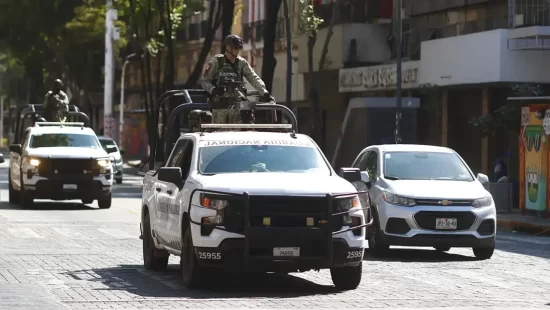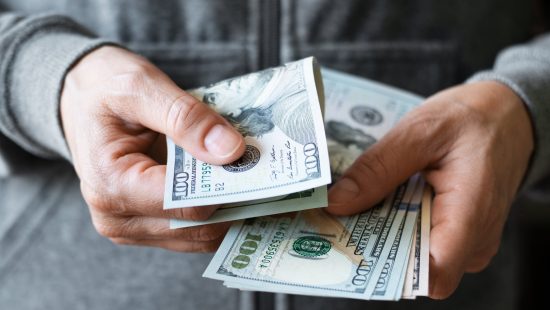Latino health experts urge vigilance as cases rise and vaccine access changes under new federal guidance
A new COVID-19 variant, NB.1.8.1, initially detected in China, Hong Kong, and Taiwan, has made its way to the United States, prompting concern among health officials and communities, especially as summer travel and gatherings increase.
According to the Centers for Disease Control and Prevention (CDC), the earliest U.S. cases of the NB.1.8.1 variant were identified in late March and early April through an airport screening program for international travelers. While the number of confirmed cases remains low, they’ve been detected in travelers entering the U.S. via California, Washington, Virginia, New York, and more recently, Ohio, Rhode Island, and Hawaii.
CDC officials say the variant has not yet been included in the agency’s variant estimates dashboard due to the limited number of sequences, but warn that it may be more widespread than current data suggests. Infections have also been identified in travelers arriving from countries such as Japan, South Korea, France, Thailand, the Netherlands, Spain, Vietnam, China, and Taiwan—indicating a broader global reach.
Experts report that the symptoms of NB.1.8.1 are similar to those seen in earlier strains of COVID-19. Dr. Subhash Verma, a microbiologist and immunologist at the University of Nevada, Reno, said the variant typically causes:
-
Cough
-
Sore throat
-
Fever
-
Fatigue
These symptoms suggest respiratory and systemic effects, but current evidence shows that NB.1.8.1 does not lead to more severe illness than previous variants.
However, the variant appears to have a growth advantage, meaning it may spread more easily. Dr. Amy Edwards, an infectious disease specialist at Case Western Reserve University, noted that lab studies suggest NB.1.8.1 binds more tightly to human cells, increasing transmissibility—but not necessarily severity. In regions like China and Hong Kong, hospitalization spikes may reflect a typical seasonal surge rather than a sign of a more dangerous variant.
The emergence of this variant comes amid a major shift in federal vaccine policy under the Trump administration. Health and Human Services Secretary Robert F. Kennedy Jr. recently announced that the U.S. will stop recommending COVID-19 vaccines for healthy children and pregnant women, a departure from previous guidance. He described the change as a “common-sense” move based on evolving science.
Last week, the FDA stated that vaccine approvals moving forward will be limited to:
-
Adults 65 and older
-
Younger individuals with underlying health conditions (including pregnancy and diabetes)
This change aligns with vaccine strategies in countries like the UK, Germany, and France, which focus annual boosters on high-risk groups.
But public health experts warn that these new restrictions may create confusion, reduce vaccination rates, and delay booster access for many people. Verma noted that requiring vaccine manufacturers to conduct new clinical trials before wider approval could mean months of delay for millions.
“Although over 100 million Americans still qualify under the new guidelines, the changes may discourage others from getting vaccinated—especially if they’re unsure about eligibility or insurance coverage,” Verma said.
Dr. Céline Gounder, editor-at-large for public health at KFF Health News, said the Biden-era commitment to transparency is now being replaced with policies that could result in reduced access. “What is happening is people are going to lose access to vaccines,” she told CBS News.
With vaccine availability shifting, doctors are encouraging people—especially in vulnerable communities like Latinos, who have been disproportionately affected by the pandemic—to continue using basic preventive strategies.
Dr. Edwards emphasized:
-
Good hygiene: Wash your hands frequently.
-
Stay home when sick: If you’re feeling unwell, avoid exposing others.
-
Mask up in crowded public places: Even a mild cough or sniffle could spread viruses.
“Masks are very effective in preventing someone who’s sick from passing that infection to others,” Edwards said. “If I have a sore throat or mild symptoms, wearing a mask protects the people around me—not just from COVID, but from other respiratory illnesses too.”
Some areas, including parts of Asia, are already reinstating mask recommendations for public transport and crowded indoor spaces.
Stay informed, especially as COVID-19 variants continue to evolve. While the new NB.1.8.1 variant appears more contagious, it’s not more dangerous—but reduced access to vaccines could leave some communities vulnerable. Keep up with local guidance, continue practicing basic safety habits, and speak with your healthcare provider if you’re unsure about vaccine eligibility.








